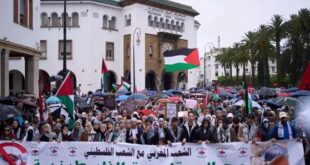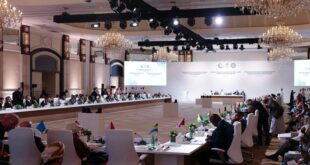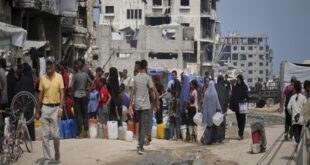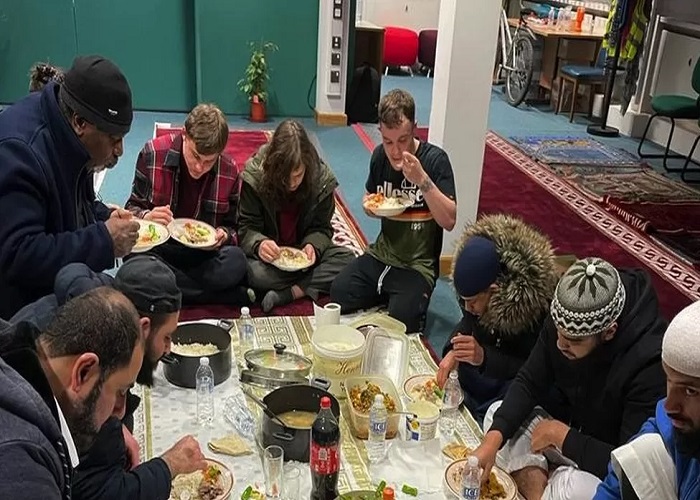
Cultural awareness of the Islamic holy month of Ramadan is growing in coastal communities, Muslim families have said.
Ramadan, the Islamic holy month, which this year began on Wednesday 22 March involves fasting during daylight hours.
The fast-breaking evening meals of Iftar in Haverfordwest mosque see Muslims and non-Muslims eat together.
Schools in Ceredigion and Pembrokeshire have been holding assemblies on Ramadan, with advice on how pupils can help their friends who are fasting.
During the month, Muslims fast – which involves abstaining from eating and drinking during daylight hours – as well as focus on self-improvement, self-reflection and giving to the less fortunate.
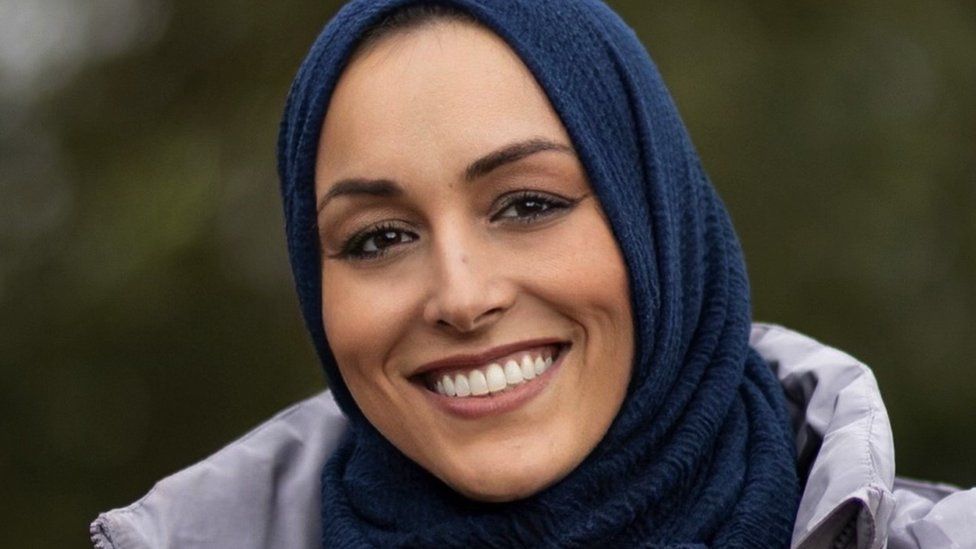
Sajida Madni, 43, from Haverfordwest, Pembrokeshire, said cultural awareness of Ramadan had increased in her local community over the last year following the opening of the first mosque in the town last Ramadan.
Mrs Madni said: « In this area there is generally less exposure to other cultures, so there were concerns when we first started up about what we would be doing at the mosque.
« So we invited all of the neighbours for Iftar to show them that we are regular people sharing food and coming together.
« We are part of a wider community, part and parcel of British society, and we should celebrate that. »
The mosque runs a youth club with a range of activities for the community which is attended by Muslim and non-Muslim people alike, and many people bring their friends to share in the evening Iftar meals during the month.
Mustafa Yunis, a trustee at Haverfordwest Central Mosque, said: « A mosque is meant to be a hub, a community centre where everyone is there and it’s brilliant to have representatives from our local community coming to eat together with us.
« We want people to feel that they are part of our community as well. »
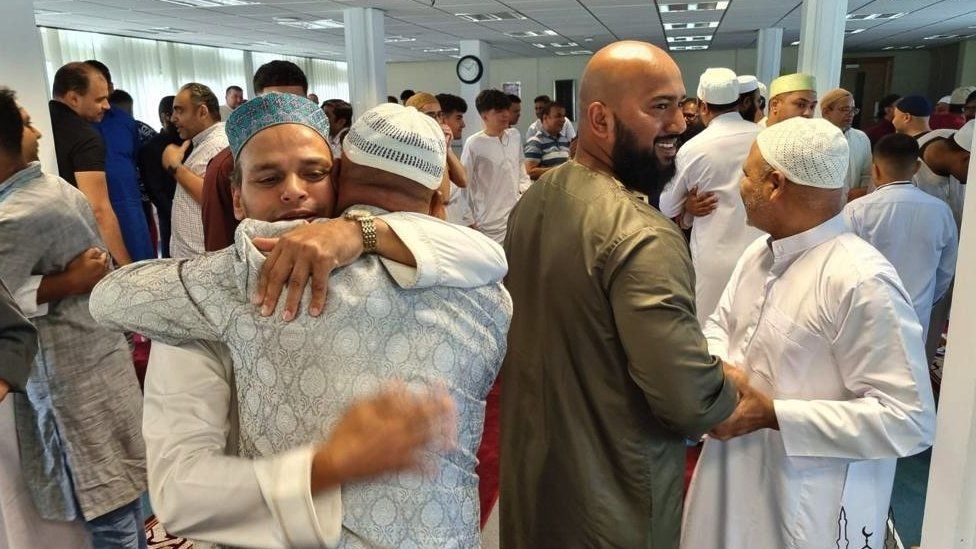
Overcoming barriers
Mrs Madni also highlighted the level of support offered by her children’s school.
Mrs Madni’s daughter, Aayah Yunis, and two children who she is a guardian for – Aziza and Mariam Akhtar – are the only Muslims at their secondary school, but she says the school has been incredibly supportive with helping them celebrate the holy month.
Castle School in Pembrokeshire has held an assembly on Ramadan, giving tips to students about how they can help their school friends who are fasting, as well as provided the three children with a prayer room.
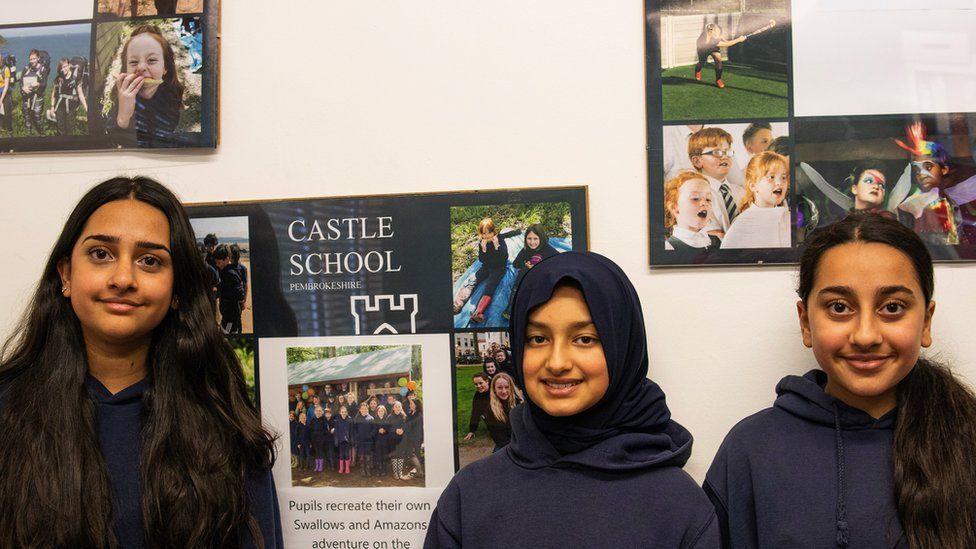
The assembly also helped break down barriers and open up conversations about the Muslim faith.
« So many of her friends were able to ask her questions after that assembly that they felt they couldn’t ask beforehand, » Mrs Madni said.
Describing the impact on her, Aayah said: ‘It’s really nice to teach people about it because it helps people learn new things and helps me express my Islamic identity. »
Castle School said that programmes that allowed pupils to interact with different cultures was « further enriching their learning experiences and broadening their horizons ».
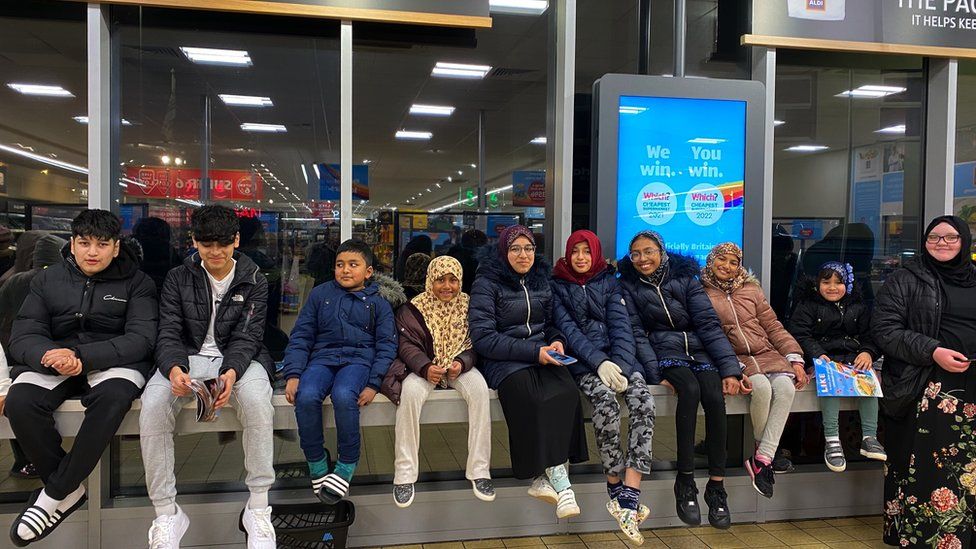
‘A positive shift’
Sara Ahmed, 40, from Ceredigion said she had noticed a « positive shift » in her children’s school’s approach to Ramadan, which also proactively held an assembly on the tradition.
« Prior to this year I’ve usually had to call into school and explain that the kids will be fasting, and that they will not be having food or water during the day and that they may need breaks during PE. The school has always been fine and positive about this.
« It wasn’t anything that parents spurred on either – this was the first time in my experience that that has happened and I really appreciated that, » she said.
She said one of her son’s friends even contacted him and said she wanted to try and fast a day with him.
« In the kids’ school, there’s probably less than 10 Muslim pupils. But compared to other schools in the area that’s quite a high number, » she said.
« There aren’t that many Muslims in the community here and you can sometimes feel you stick out a bit. So it’s really great to see people taking an interest and embrace our culture. »
By Sanjana Idnani – BBC News






